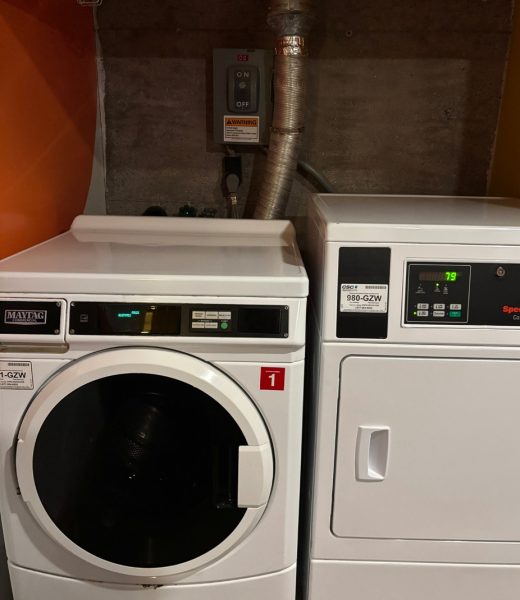
Free laundry has become one of the biggest changes on campus this year, drawing a wide range of reactions from students. While some are relieved to no longer worry about paying per load, others question whether the added tuition cost outweighs the benefit.
For Sara Ghaemi ’27, the new policy is “exciting, but also bittersweet.” As a junior, she reflected on the frustration of having paid for laundry during her first two years: “I was very excited for free laundry, but also a little sad because I had to go through school paying for laundry for the last two years.” Ghaemi also admitted she was initially nervous about increased demand, worrying that the machines might always be occupied. Despite this, she feels the policy has made campus life easier. “In the past, I would wait until I had a lot of laundry before doing it, but now I feel I can space out my laundry more evenly.” When asked about whether free laundry offsets the tuition hike, Ghaemi explained, “I do feel that it helps, but I’m still paying more regardless of whether laundry is free or not.”
Sarah Aaron ’28 had a more critical perspective. “I think it is really nice to not have to pay for laundry each time, and it is way more convenient at the moment,” she said. However, she expressed frustration with the $150 increase to tuition tied to the change. “That is way more than I would usually spend,” she explained. For her, free laundry doesn’t come close to making up for the tuition rise: “The change in laundry definitely does not offset the amount Hamilton raised their tuition by. It’s a nice convenience, but in the long run it costs students way more.”
She also raised an important concern about equity, pointing out that “individuals on financial aid don’t even get extra money for laundry. If they did, then this change might be good, since it would put the additional cost more on those who can pay it.”
For Yaretzy Castillo ’28, the biggest relief is no longer paying out of pocket. “It’s definitely relieving that I don’t have to spend money on laundry. Typically, I would spend $6 for two loads last year, so I’m glad I just have to worry about detergent and softener!” she said. At the same time, she noted drawbacks to the policy. “Yes, but also no,” she explained when asked about convenience. While she no longer has to spend her own money for laundry, she finds that some students take advantage of the system. “People are really taking advantage of free laundry by putting in a lot of clothes to wash back-to-back, and that gets annoying. Typically, the people who do that don’t keep track of their time, so unfortunately I have to take their laundry out.” On tuition increases, Castillo was skeptical: “I know many institutions will add to tuition fees whenever they can. I’ve also heard from a couple of students that their tuition increased without any change in income, which is disappointing to see.”
These student reflections reveal both the excitement and complications of free laundry on campus. While some, like Ghaemiand Castillo, find the policy convenient and cost-saving, others, like Aaron, see it as an unnecessary tuition burden. Overall, the change highlights ongoing questions about fairness, accessibility, and how tuition dollars are used to shape student life.


























